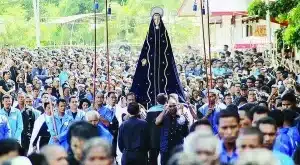Discovering the Takjil Market: A Ramadan Culinary Journey through Java and Sumatra invites you to explore one of the most authentic cultural moments in Indonesia. While Indonesia is known for its paradise beaches, majestic temples, and ethnic diversity, it also captivates with its culinary traditions—especially vibrant during the holy month of Ramadan.
Each evening, as the sun sets, the streets of Java and Sumatra transform into temporary takjil markets, bustling spaces filled with spirituality, togetherness, and delicious food. These pasar takjil are more than just food stalls; they are social rituals that reflect a society rooted in solidarity and tradition.
This article takes you on a culinary journey through the Takjil Market during Ramadan in Java and Sumatra, offering a unique experience at the heart of Muslim Indonesia.
What is a Takjil?
Takjil refers to light dishes served to break the fast after sunset prayers (Maghrib). Usually sweet, cool, or fried, these foods vary from one region to another. You’ll find:
-
Kolak – banana and sweet potato dessert in coconut milk
-
Cendol – iced sweet drink with green rice jelly and palm sugar
-
Es Buah – tropical fruit cocktail
-
Pastel – savory fried pastry
-
Sate Ayam – chicken skewers with peanut sauce
Java: Flavorful Variety in Every City
In Jakarta, the Bendungan Hilir Market is packed with options from sweet kue lapis to spicy lontong sayur.
In Yogyakarta, near the royal palace, the Pasar Ramadan Kauman offers traditional Javanese dishes like nasi kucing and gudeg.
Each destination in the Takjil Market journey through Java and Sumatra presents its own flavors, dialects, and local customs.
Sumatra: Rich, Spicy Traditions
In Medan, northern Sumatra, markets burst with Batak and Minangkabau flavors:
-
Bubur Pedas – spicy porridge with herbs
-
Martabak Manis – thick pancake with sweet toppings
-
Lemang – glutinous rice cooked in bamboo
In Padang, sharing meals is a cultural highlight—many locals buy takjil to share with guests and neighbors.
A Feast for the Senses
As part of your Ramadan culinary circuit, expect sensory delight: the call to prayer, wafts of spices, cheerful vendors, and vibrant food stalls. Even as a non-Muslim, you’ll be welcomed with warmth and curiosity.
The Social Impact of Takjil Markets
These markets also support local economies and promote generosity. Many mosques distribute free takjil to the poor, and temporary stalls give income opportunities to students and small vendors.
Tips for Your Visit
-
Arrive between 4–6 PM for the full experience
-
Bring small cash in Indonesian rupiah
-
Try multiple dishes for a rich sampling
-
Be respectful of fasting traditions
-
Ask before photographing people or food stalls
Add It to Your Travel Plan
Visiting Java and Sumatra during Ramadan gives you a deeper cultural perspective. Join guided food tours or attend local cooking workshops for an immersive experience.
Conclusion
Discovering the Takjil Market: A Ramadan Culinary Journey through Java and Sumatra is more than a culinary trip—it’s a spiritual, cultural, and human connection you’ll cherish.
Ready to experience it?
Contact Bali Ethnik – Indonesian Travel Agency to help you plan an unforgettable Ramadan journey filled with culture, flavors, and heartwarming encounters.





